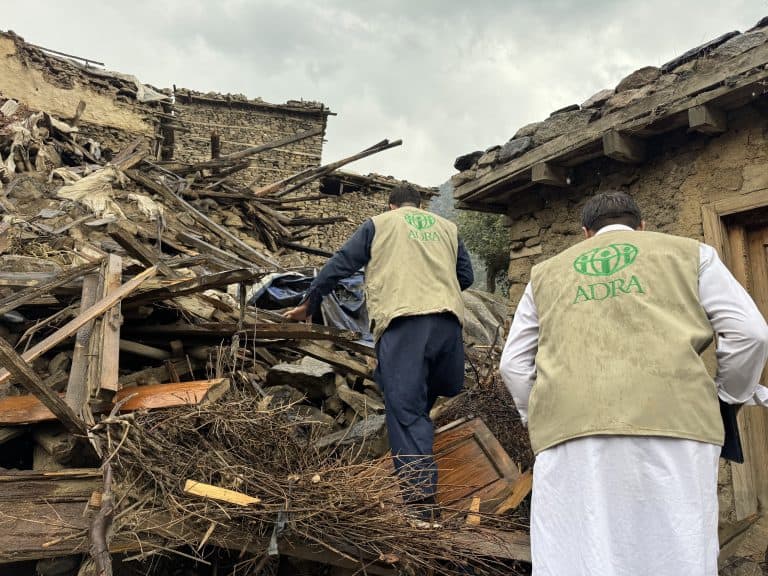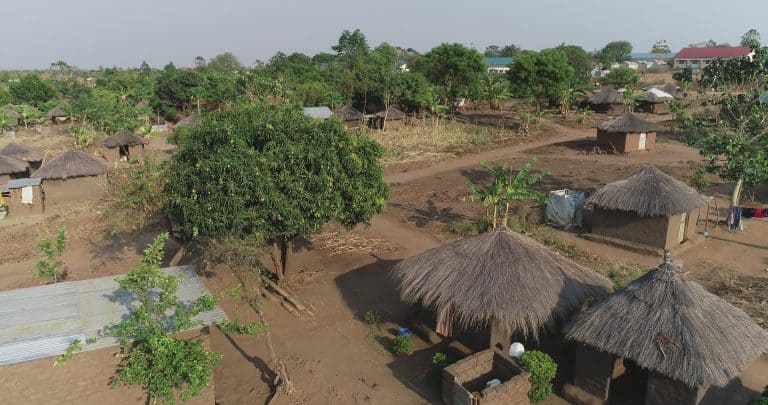
In a world where the global nutrition burden disproportionately affects vulnerable communities, ADRA is committed to transforming lives, and stands at the forefront of addressing these pressing challenges. The 2023 edition of the State of Food Security and Nutrition in the World (SOFI) report reveals that between 691 and 783 million people faced hunger in 2022, with a mid-range of 735 million. This represents an increase of 122 million people compared to 2019, before the COVID-19 pandemic.
With a pervasive presence across more than 120 countries across the globe, ADRA recognizes the profound impact of malnutrition on individuals and communities, hindering growth, development, and overall well-being. Committed to making a positive difference, ADRA implements a multi-sectoral approach to tackle the root causes of malnutrition, providing sustainable solutions that not only nourish bodies but also empower communities to thrive and be more resilient.
?
ADRA conducts operational research to understand and establish multi-pronged communication channels and messages that are aimed at specific nutrition behaviors. Some of ADRA’s nutrition social and behavior change (SBC) activities include mothers’ and fathers’ groups in Mozambique to deliver nutrition and health messages to over 60,000 beneficiaries, which were sustained by the community even after the program ended. The Care Group model is another method ADRA has used in DRC and in Madagascar to influence positive nutrition, health, and hygiene behaviors of caregivers of children under five years of age. ADRA trains community volunteers to negotiate optimal infant and young child feeding (IYCF) methods with caregivers and follow-up in the community for continued support and to document progress on agreed practices. Health facility personnel are also trained to identify children whose caregivers need nutrition counselling and how to effectively provide this type of counselling. All ADRA offices are encouraged to protect children by promoting the International Code of Marketing of Breastmilk Substitutes and support the Baby-Friendly Hospital Initiative. During emergencies, ADRA workers dedicate themselves to understanding the unique barriers faced by caregivers, supporting them by creating an enabling environment and providing tailored individual counselling.
Climatic changes, conflict, and various environmental elements constitute some of the underlying causes of malnutrition for many. Because of this, ADRA has set up early detection mechanisms through volunteer community surveillance systems to mitigate the severity of malnutrition in various communities around the globe. Where complex conflicts displace numerous families from their sources of food and livelihoods, ADRA refurbishes dilapidated health facilities and implements targeted supplementary feeding, providing ready-to-use supplementary food (RUSF) to children with moderate acute malnutrition, along with supplementary foods (such as Super Cereal II Plus) to pregnant and lactating women to complement their family meals. For children with severe acute malnutrition, ADRA partners with institutions such as local health ministries and UNICEF to provide ready-to-use therapeutic foods to children in health facilities. ADRA recently introduced the Management of small and nutritionally at-risk infants under six months and their mothers (MAMI) Care pathway in Yemen via a pilot in nine health facilities and their community catchment areas. To date, ADRA is the only organization that has implemented an adapted MAMI approach in Yemen (to ADRA’s knowledge). ADRA has also demonstrated successful results from the initial pilot and both the national Nutrition cluster and government endorse the approach.
Monitoring the growth of adolescents, women and children is among the key activities of ADRA. In all countries where feeding programs are implemented, ADRA establishes baseline prevalence of malnutrition through population or beneficiary-based surveys. Ongoing programs are monitored through monthly growth monitoring, rapid or periodic surveys, and evaluations. For emergency settings, SMART trainings dedicated to ADRA staff are conducted to build internal capacity to assess nutrition status. Mobile data applications are particularly utilized in activities to collect and analyze growth monitoring data for better efficiency and accuracy. In Madagascar, ADRA utilized mobile data application developed by Dimagi (Commcare) to collect and analyze growth monitoring data. Commcare was also used to report other nutrition activities implemented within the project. ADRA has partnered with research and academic institutions such as the Johns Hopkins School of Public Health to conduct operational research in DRC and South Sudan.
ADRA advocates for diverse diets rich in fruits and vegetables. To assist communities in meeting their nutritional needs, ADRA implements programs that establish nurseries and homestead gardens to provide these food items. Knowledge on how to raise selected crops and deal with pests and insects is delivered through practical training, including demonstration gardens. Because ADRA has identified the power of teaching communities how to prepare nutritious meals using local ingredients, the produce from nutrition gardens is utilized as ingredients for cooking demonstrations to assist with the prevention and management of moderate acute malnutrition. The remaining produce is used as needed and is preserved for lean seasons.


Discover the incredible impact ADRA has across the world! With a presence in over 120 countries, ADRA brings new hope and positive change to countless communities in need. From disaster relief to long-term sustainable development projects, ADRA’s commitment to making a difference has inspired many to join in their efforts to create a better world. Through perseverance and compassion, ADRA has touched the lives of so many and continues to inspire us all to work towards a brighter future. Together we can make a difference.